Lessons from 50 years of implementing President Ho Chi Minh's Testament
(Baonghean.vn) - Ho Chi Minh - National liberation hero, outstanding cultural figure, one of the great men of the 20th century has passed away nearly 50 years ago, but the great legacy of ideology and spirit contained in each of his works is still accompanying the Vietnamese people in the new millennium. One of those legacies is the heartfelt testament, the humble voice of a communist, imbued with humanity, rich in national and contemporary cultural identity, with value beyond space and time - the historical Testament.
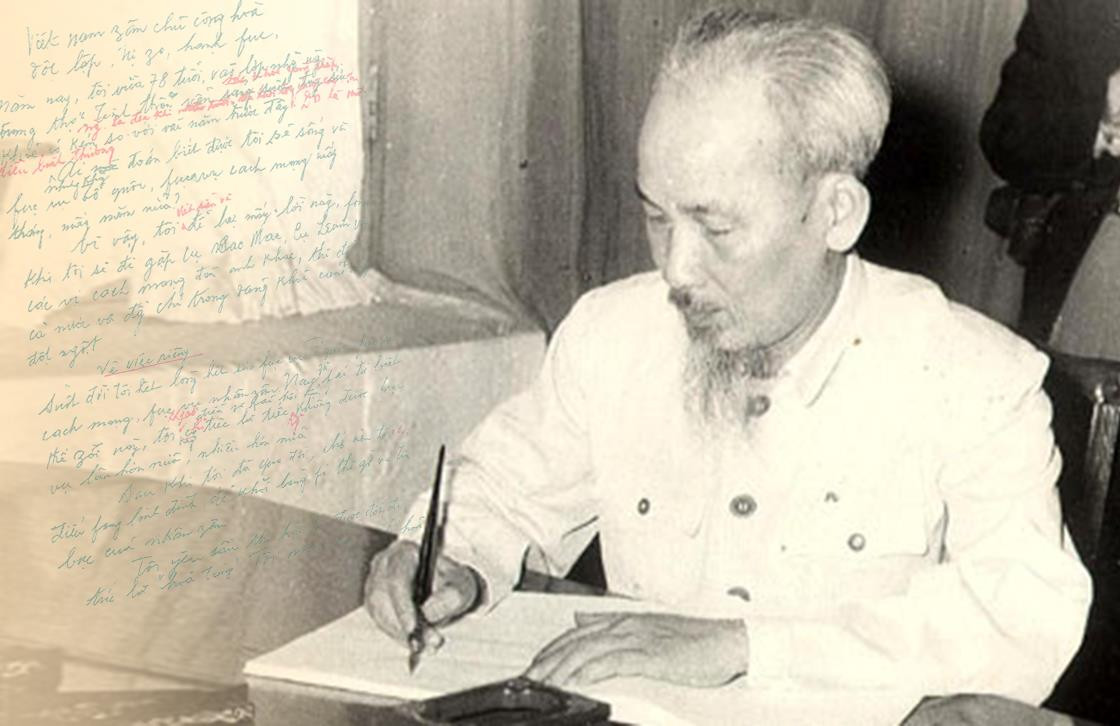 |
His thoughts inTestamenthas been illuminating the path to socialism and the cause of innovation and integration of the Vietnamese people. These are not only strategic guidelines for determining the direction, guidelines, tasks, policies, and legal system of a ruling Party; for building and rectifying the Party; for innovation and development; for steadfastness in the goal of national independence and socialism,... for building and protecting the country, but also outlines in the action program of the entire Party, the entire people, and the entire army to build a country that is sustainable and modern.
01.
Lessons on the Party's optimism and revolutionary scientific mettle
President Ho Chi Minh's Testament was written in the context of our nation's resistance war against the US to save the country being in a fierce phase. Deep belief in the resistance war against the US to save the country "complete victory is certain. That is a certainty.”In Uncle Ho's Testament, the flame of faith was instilled in every person and created a great strength - the strength of faith, of the revolutionary will of the entire Vietnamese people, creating the historic Great Victory of Spring 1975. In the early 1980s of the 20th century, we had to face the weaknesses and inadequacies of the subsidized bureaucratic administrative mechanism, the economy fell into a serious crisis.
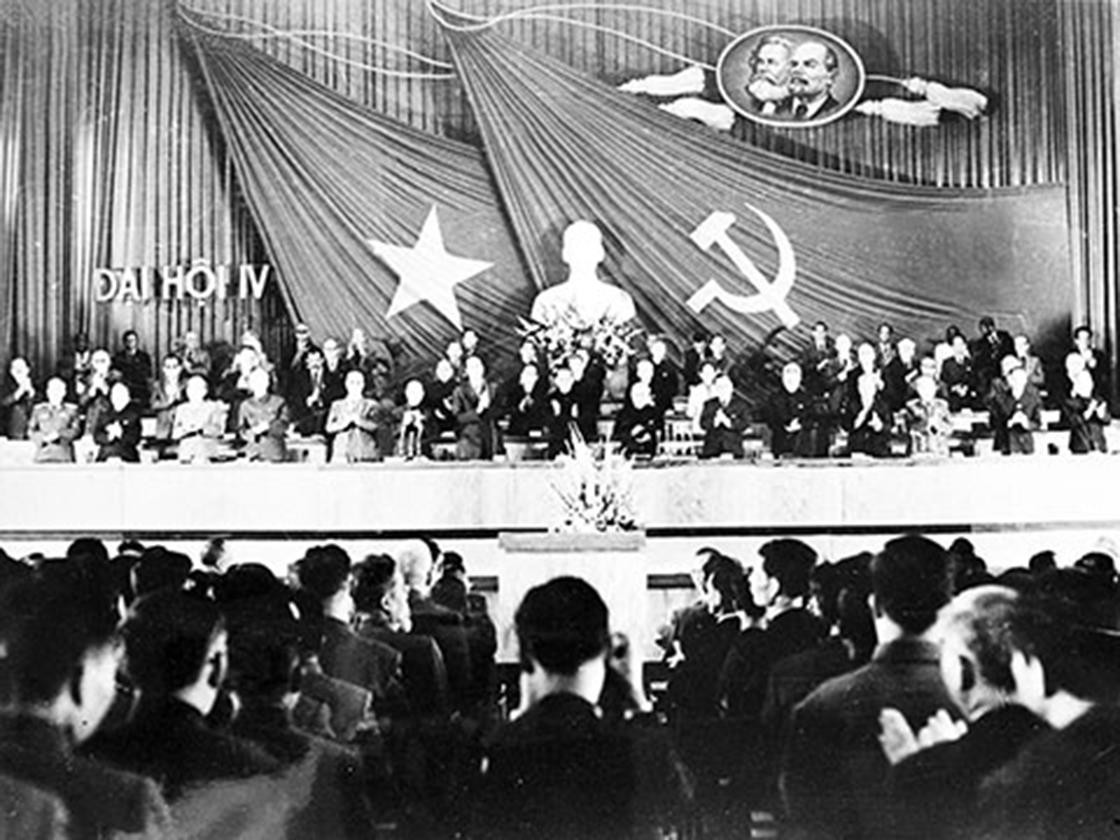 |
| The 4th National Congress of the Communist Party of Vietnam, Hanoi, December 1976. Photo: Baotanglichsu |
It was in that context that our Party demonstrated its scientific and revolutionary mettle by initiating, organizing and leading the country's renewal process.
At the 4th Congress, our Party "looked straight at the truth", conducted self-criticism and criticism, and seriously drew historical lessons from the Vietnamese revolution: "taking the people as the root", "respecting and acting according to objective laws", "uniting the entire people" to promote the combined strength to defend the Fatherland and build socialism.
02.
Lessons on solidarity and unity in the Party
In his will, Uncle Ho affirmed“Solidarity is an extremely precious tradition of our Party and people.”Maintaining solidarity and unity within the Party is the decisive factor for success in all tasks, "progressing from one victory to another". Thanks to solidarity, our Party led the people to successfully carry out the August Revolution, establishing the Democratic Republic of Vietnam. Thanks to solidarity and unity, we defeated the French colonialists and American imperialists, gained independence, unified the country, and advanced to socialism. Thanks to solidarity and unity between the Party's will and the people's will, our country successfully carried out the renovation process, escaping the socio-economic crisis.
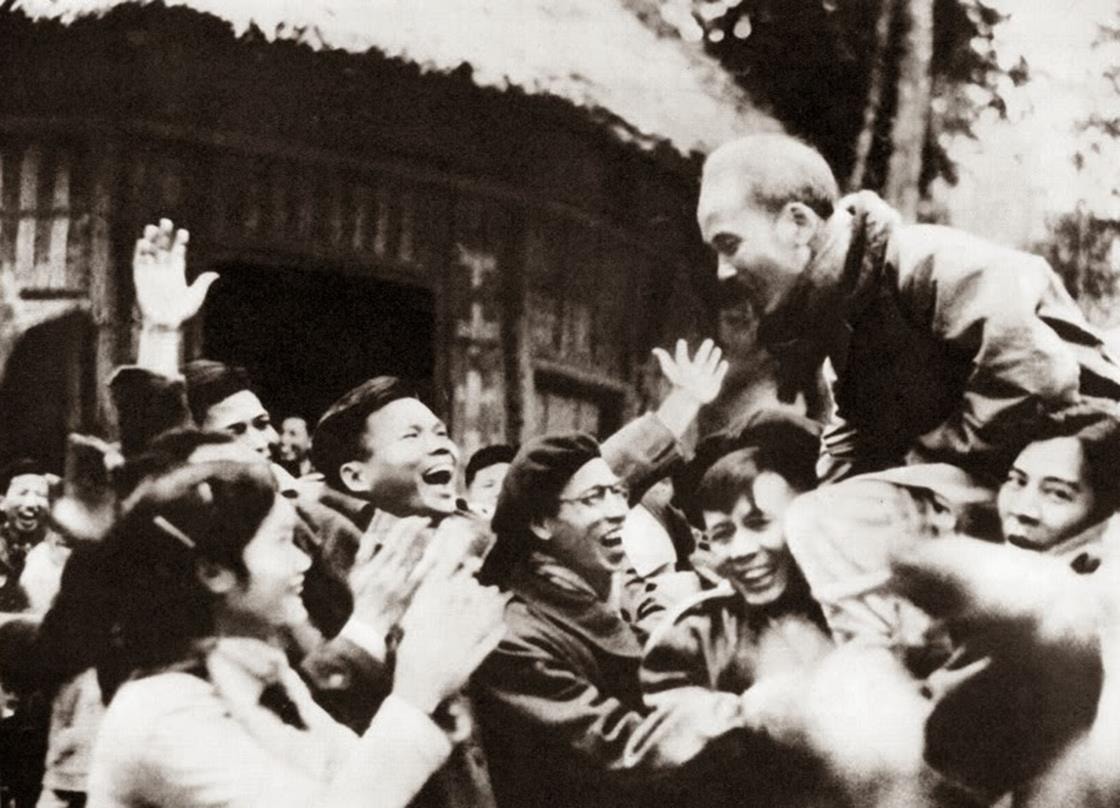 |
| Uncle Ho with delegates of the Viet Minh - Lien Viet Unification Congress, 1951. Photo courtesy |
Unity within the Party must be considered a long-term strategy for the revolutionary cause. As the sole ruling Party, our Party must build and consolidate unity."preserve the unity and solidarity of the Party as you preserve the apple of your eye."
The Party's solidarity is a mirror for the entire political system and is the decisive factor in ensuring great national solidarity.
03.
Lessons on practicing democracy widely, regularly, seriously self-criticism and criticism
To build the solidarity and unity of the Party according to President Ho Chi Minh's Testament, our Party must practice true democracy. Thanks to democracy, our Party has aroused and promoted the highest intelligence, improved its leadership capacity and fighting strength. Thanks to democracy, the Party has gradually overcome factionalism, localism, bureaucracy, authoritarianism, and distance from the masses.
Practicing democracy widely means real democracy, regular democracy, democracy from the Central to the grassroots. However, democracy must be associated with centralism. Democratic centralism is a vital principle and also the best way to build our Party. Resolutely fight against manifestations of formal democratic practice. Taking advantage of democracy to spread personal views and ideologies, harming the common interest, causing disunity in the Party and in society.
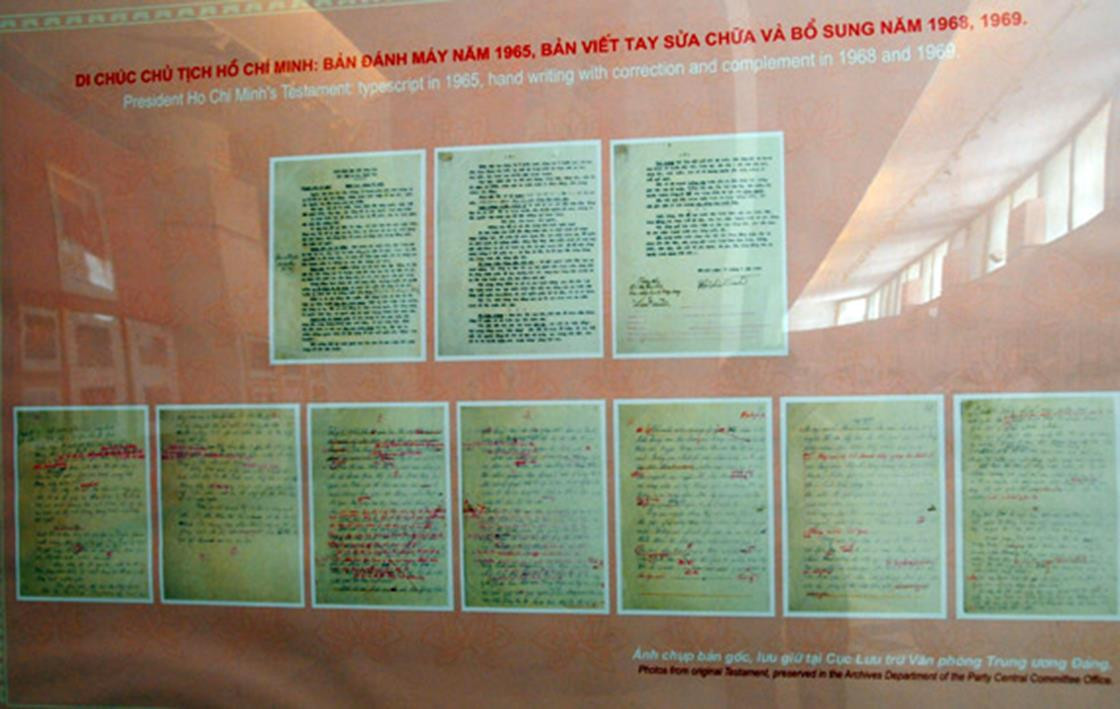 |
| President Ho Chi Minh's Testament: Typewritten in 1965, handwritten, revised and supplemented in 1968 - 1969. Documentary photo |
Regularly and seriously self-criticize and criticize. Self-criticism and criticism are the principles and laws of the Party's development. In his Testament, Ho Chi Minh considered this the best way to consolidate and develop the Party's solidarity and unity. He requested that self-criticism and criticism be regular, serious, without being lenient, superficial, or formal. The purpose of self-criticism and criticism is to help oneself and one's teammates to progress more and more; absolutely do not criticize in the style of "looking for worms in leaves", "nitpicking" to suppress, fight, and bring down each other because of personal conflicts or personal motives.
According to Ho Chi Minh, self-criticism and criticism are regular tasks; to stop self-criticism and criticism is to stop progress and to regress.
04.
Lessons on paying special attention to the young generation, the future owners of the country
Union members and young people are the successors of the Party's revolutionary cause. Good seeds will sprout and grow into green shoots for the country and homeland. Uncle Ho advised:“The Party needs to take care of educating them in revolutionary ethics, training them to become successors in building socialism who are both “red” and “expert”. Nurturing the next generation of revolutionaries is a very important and necessary task.”. This work is “important” because none other than the young generations will continue the revolutionary cause. This work is “necessary” because of its immediate urgency as well as its long-term career; the training of revolutionary ethics and the building of a revolutionary generation require a time of testing.
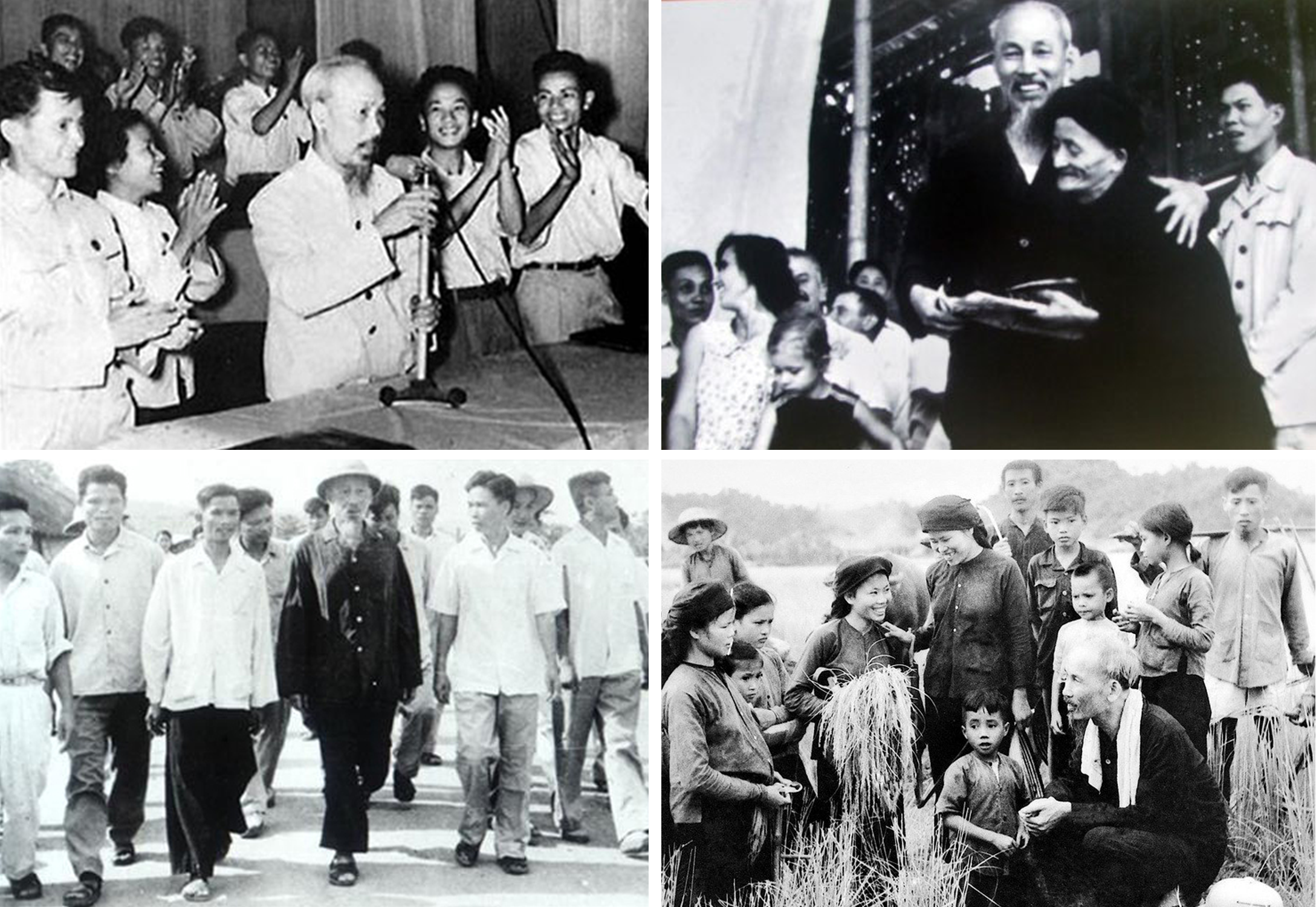 |
| Uncle Ho spoke with delegates attending the 2nd National Youth Union Congress in 1956; Uncle Ho gave gifts to ethnic minority elders living near the apatite mine in Lao Cai (1958); Uncle Ho visited the Hoa Binh Socialist Labor Youth School (August 17, 1962); Uncle Ho visited farmers harvesting rice in the fields of Hung Son commune, Dai Tu district, Thai Nguyen. Photo archive |
05.
Lessons aboutcare for and constantly improve people's lives
Caring for the people is the duty and responsibility of the Party because the Party's interests are not outside the interests of the nation and the people. Only then will the people have firm faith in the Party; wholeheartedly follow the Party so that life will become more and more perfect.
06.
Lessons on the spirit of dedication to revolutionary ideals
When talking about his personal affairs in his Testament, Uncle Ho “only regretted not being able to serve longer and more” for the Fatherland, for the revolution and for the people. He emphasized the word “serve” to clarify the duty of a revolutionary to selflessly “serve” the Fatherland and the people. A cadre is both a leader and a loyal “servant” of the people, not demanding any personal benefits, dedicating his whole life to the people and the Fatherland.
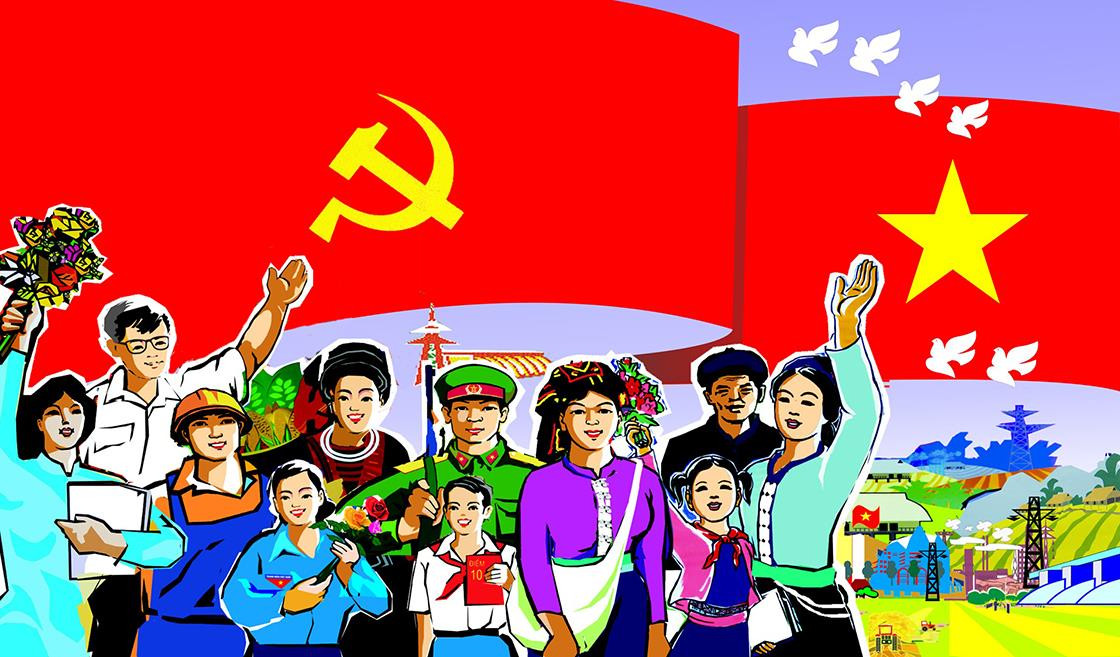 |

